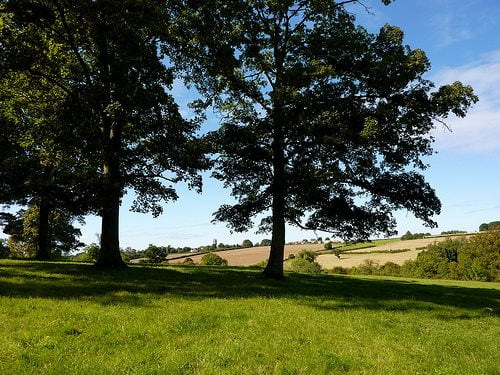

News
English councils preparing to give greenbelt land to developers
More than half of councils in England that preside over greenbelt land are preparing to offer some of it to developers, while perfectly suitable brownfield sites are being overlooked, a new study was warned.
A Local Government Information Unit survey, commissioned by the National Trust, found that 51% of 59 councils with greenbelt land within their authority said they were now likely, or very likely, to allocate it for development projects in the next five years.
However, more than half of the 147 councils that responded to the survey said that they had brownfield sites available that could help meet housing supply targets, but that these hadn’t been considered viable.
In August, figures from the Campaign to Protect Rural England (CPRE) showed that planned development on greenbelt land had already increased 84% since 2012.
These findings come 18 months after the introduction of the government’s much-criticised National Planning Policy Framework (NPPF). The coalition said the reform of its planning policy would encourage localism and reduce bureaucracy, but critics predicted it would leave swathes of the countryside unprotected.
“The prime minister and communities secretary Eric Pickles have always made clear their desire to protect the greenbelt but this is not what the NPPF appears to be delivering on the ground”, said Ingrid Samuel, historic environment director at the National Trust.
“We are calling on the government to amend its new guidance to ensure the planning system delivers on the government’s promise to deliver a ‘brownfield first’ policy, and to reaffirm its commitment to protect valued green spaces from development.”
In 2012, greenbelt areas covered roughly 13% of England. Greenbelt land is designated to prevent the unrestricted sprawl of urban areas and safeguard the countryside, while encouraging developers to regenerate derelict land.
The National Trust says this latest survey is evidence that this isn’t happening.
“The government’s definition of ‘sustainable’ is in practice being interpreted as ‘profitable’, and has effectively killed the former planning presumption in favour of brownfield land,” warned Simon Jenkins, chairman of the charity.
“What is now happening is a policy of let rip, leading to steady erosion. For the first time in British planning history, planning control is now the slave not the master of profit.”
Further reading:
‘Greenest government ever’ has failed the environment, NGOs say
‘Urgent’ action needed to protect green belt land
Campaigners say government planning policy will ‘wreck countryside’


 Features11 months ago
Features11 months agoEco-Friendly Cryptocurrencies: Sustainable Investment Choices

 Energy11 months ago
Energy11 months agoThe Growing Role of Solar Panels in Ireland’s Energy Future

 Energy10 months ago
Energy10 months agoGrowth of Solar Power in Dublin: A Sustainable Revolution

 Energy10 months ago
Energy10 months agoRenewable Energy Adoption Can Combat Climate Change




























